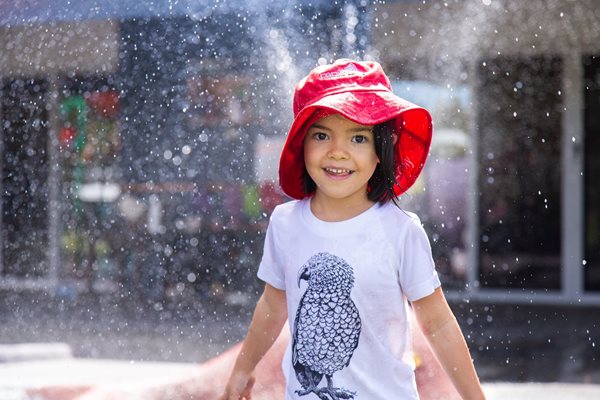
Post updated July 2025.
There’s something magical about a toddler, barefoot in the sunshine, giggling as they splash water from one cup to another. For our little ones, water play is more than fun, it’s a full-body, full-senses learning experience that supports everything from emotional wellbeing to fine motor development.
At Milestones Early Learning, water play is a treasured part of each day, whether it’s exploring a water table during outdoor play, watching bubbles in the bath, or pouring and scooping alongside friends. And the best part? You can bring this kind of playful learning into your own home with just a bowl of water and a bit of curiosity.
Why Water Play Matters for Toddlers
A Sensory Wonderland
Cool water on warm skin. The sound of splashes and giggles. The gentle flow between tiny fingers. Water play offers rich, soothing sensory experiences that help toddlers process the world around them and feel grounded in the moment.
Tiny Hands at Work
Scooping, pouring, squeezing - these small movements build hand strength, control, and coordination. Every time your child fills a cup or squeezes a sponge, they’re developing the muscles they’ll later use for writing, eating, and dressing.
Big Words from Little Voices
Water play invites language - words like wet, pour, sink, and splash come naturally as toddlers narrate what they’re doing. These moments are golden opportunities for conversation, vocabulary growth, and connection.
Science Without the Worksheets
Water play introduces early STEM thinking in the most natural way. What floats? What sinks? What happens when I tip this over? Children experiment, observe, and predict, all before they even know what “science” is.
Sharing the Splash
When children play together at a water table or splash pad, they begin to practice turn-taking, cooperation, and empathy. These small social moments are big steps toward emotional intelligence and friendship-building.
Imagination in Action
Water becomes a potion, a soup, a lake for toy animals. Imaginative water play fuels creativity and storytelling, essential for early brain development and self-expression.
Calm and Connected
Water is soothing. Whether it’s bath time or a backyard bucket, toddlers often become more settled and focused around water. It can be a gentle way to help them reset after a busy or emotional day.
What Water Play Looks Like at Milestones
At Milestones centres, we often set up water play during outdoor morning play or in small group sensory sessions. It’s flexible, inclusive, and safe, with children exploring everything from floating leaves to mixing coloured water with measuring cups. Our educators gently guide the experience, helping children build confidence, curiosity, and care for their environment.
Water play supports key outcomes of our Lifelong Learning Curriculum, especially in the areas of communication, physical development, and self-regulation.
Easy Water Play Ideas to Try at Home
You don’t need fancy tools. Just start with one of these and see where your child’s imagination takes you:
- Water table or bowl - Add cups, ladles, toy boats, or even spoons and sponges. Let your toddler scoop, pour, and splash freely.
- Water painting - Give your child a bucket of water and a paintbrush. Let them “paint” the fence, driveway, or pavers. It’s calming, mess-free, and so satisfying.
- Bubbles and water - Use bubble wands or kitchen tools like slotted spoons to create magical shapes. Try blowing bubbles into a water tray and watch how they dance and pop.
- Backyard splash pad - Set up a sprinkler or splash mat on a warm day. Invite your child to run, twirl, or tiptoe through it, no instructions needed.
- Bath-time ccience - Drop in different toys and ask: will it float or sink? Add coloured bath fizzies or scoops to turn it into a sensory lab.
- Nature water bin - Add petals, stones, leaves, or sticks to a bucket of water. Watch what floats, what sinks, and what makes the biggest splash.
A Quick Word on Safety
Water play should always be actively supervised, even with shallow water. Stay within arm’s reach, and talk about safety rules in age-appropriate ways. It’s also a great chance to model respect for water and start conversations about water safety early on.
Ready to Make a Splash?
You don’t need to plan a whole activity session. Just grab a bowl, some spoons, and a towel, and let your child lead the way. You’ll be amazed at how much learning (and laughter) can come from a little splash of water.
Want to learn how water play and other sensory activities support your child’s learning? Find your local Milestones Early Learning centre and book a tour today.
